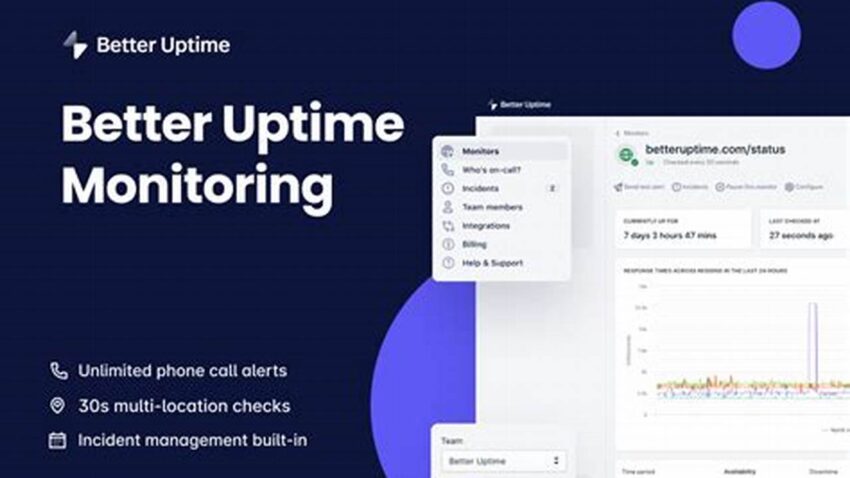Maintaining a consistently accessible website is crucial for any online presence. This involves regularly monitoring server uptime and implementing effective strategies to ensure minimal downtime. For those utilizing Linux servers, a variety of tools and techniques are readily available to facilitate this process, from simple command-line utilities to sophisticated monitoring systems. Understanding these methods empowers administrators to proactively address potential issues and maintain a reliable online service.
Automated Monitoring
Employing automated monitoring tools allows for continuous observation of server status and immediate alerts in case of outages.
Manual Spot Checks
Periodic manual checks using command-line tools provide a quick and direct method for verifying server responsiveness.
Network Connectivity Verification
Confirming network connectivity is a fundamental step in diagnosing potential downtime causes.
Service Status Checks
Regularly checking the status of essential services like web servers and databases is critical for maintaining website availability.
Log File Analysis
Examining server logs can reveal valuable insights into error conditions and potential downtime triggers.
Resource Monitoring
Monitoring server resource utilization, such as CPU, memory, and disk space, can help prevent performance bottlenecks and downtime.
Alerting Systems
Implementing alerting systems ensures timely notification of downtime events, enabling swift corrective action.
Performance Testing
Regular performance testing can identify potential bottlenecks and optimize server configurations for improved uptime.
Tip 1: Utilize a Monitoring Service
Leveraging a dedicated monitoring service offers comprehensive uptime tracking and detailed reporting.
Tip 2: Implement Redundancy
Redundant server configurations minimize the impact of hardware failures and ensure continuous service availability.
Tip 3: Regularly Update Software
Keeping software up-to-date patches security vulnerabilities and improves system stability, reducing potential downtime.
Tip 4: Develop a Response Plan
Having a well-defined response plan for downtime scenarios ensures a coordinated and efficient recovery process.
How can I determine the root cause of server downtime?
Analyzing server logs, checking network connectivity, and reviewing resource utilization are essential steps in diagnosing downtime causes.
What are some common tools for monitoring server uptime on Linux?
Popular tools include Nagios, Zabbix, Prometheus, and Pingdom, offering various functionalities for comprehensive monitoring.
How often should I check my server’s uptime?
The frequency of checks depends on the criticality of the website. For essential services, continuous monitoring is recommended, while less critical sites may require periodic checks.
What are the benefits of using automated monitoring tools?
Automated tools provide continuous monitoring, immediate alerts, and detailed reports, enabling proactive management of server uptime.
What is the importance of having a downtime response plan?
A response plan ensures a structured and efficient approach to resolving downtime incidents, minimizing their impact on users.
How can I improve my Linux server’s uptime?
Implementing redundancy, regularly updating software, monitoring resources, and utilizing a monitoring service are effective strategies for improving server uptime.
Ensuring consistent website availability requires a proactive approach to server uptime management. By implementing the strategies and tools discussed, administrators can effectively monitor their Linux servers, prevent potential downtime, and maintain a reliable online presence. This proactive approach minimizes disruptions, enhances user experience, and ultimately contributes to the success of any online endeavor.

